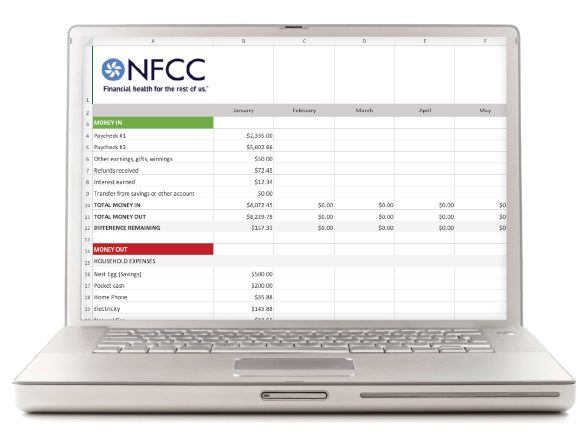Tips for Dealing With Money as a New Couple

Starting a new relationship can be very exciting. It’s fun to spend time with someone you have sparks with and it is natural to wonder if this person could be a big part of your future. There is, however, an aspect of getting to know this new person that you don’t want to overlook, and it has to do with money.
Between date nights, gifts and romantic weekend trips, dating a new person can have a big impact on your finances. And as you grow closer, that impact can grow even bigger. Here’s how you can make sure your relationship gets on the right track when it comes to money.
Be a cautious optimist
In the beginning of a relationship, it’s natural to see the best in a new partner. While there’s nothing wrong with feeling excitement over a new person, it’s always wise to practice “cautious optimism,” meaning you hope for the best while understanding there might be other outcomes.
Whether you’re a few days, weeks, or months into the new relationship, it’s important to take caution when it comes to money. This new person has a financial past and a way of dealing with money that might take some time to understand. So as you get to know each other, observe yout new partner’s financial habits with the goal of understanding them better.
Until you have a strong understanding of their relationship with money, it’s best to avoid combining finances. And remember, if your relationship is exclusively online, you’ll want to be extra careful and watch out for romance scams.
Here are some financial do’s and don’ts in a new relationship:
| Don’t | Do |
|
|
Learn each other’s money personalities
As you get to know your partner, don’t overlook their habits, beliefs and motivations around money, also known as their “money personality.” You can learn about their money personality through a combination of conversations and observation. To get to know each other better, consider talking through the following questions:
- What did your family teach you about money as a child?
- Are you expected to support your family financially?
- How do you decide what to spend money on?
- Do you have a positive or negative relationship with money?
- Do you have any religious or moral beliefs about money?
- What’s something you want to understand better about money?
- What are your financial goals?
Be observant and look for areas that might be concerns and areas of strength. This information is all good to have now, but will also help you understand what makes your partner tick and can determine if you two are compatible in the long-term.
Set goals together
As your relationship develops, you can take steps to create a solid financial foundation together. One of the best ways to do that is to share your personal goals and, if applicable, establish goals as a couple.
When you understand what you and your partner are working towards, whether it’s a big or small goal, you can offer support to each other. Do you want to pay off old debts or student loans? Is your partner aiming to earn a certain salary? Wherever your objectives are, you’ll have opportunities to either support one other’s progress or tempt each other to go off course. In a healthy relationship, you’ll both encourage each other to achieve your goals.
Decide what to share
For some couples, being in a relationship means eventually sharing expenses. If you don’t decide who’s responsible for what, this part of being in a couple can be a source of conflict. Instead of hoping money questions get worked out on their own, be proactive in deciding how to split things fairly before you move in together, get married or combine your finances in some other way.
To start, list out all the expenses you need to attend to. Then, go through the list together and decide how to cover them. You might decide that any of the following is the best solution:
- Split costs 50/50
- Split costs proportionally to your income
- Each of you takes responsibility for specific expenses
Whatever you decide, try to stick with your budget plan for at least a few months to create consistency and see what works and what doesn’t.
Revisit the budget often
You may want to stick with your original budget for the sake of convenience, but it’s better to make improvements as you learn from your experiences together.
To do that, make sure to revisit the budget as often as once a month or more. Doing so will allow you to make adjustments as changes occur, track your progress and hold each other accountable. By reviewing things regularly, you’ll build a habit of open communication about your finances.
More Help is Available
A new relationship means new experiences and opportunities for your future. As you go through this exciting change, remember to keep your finances a top priority. If you need more help tending to your credit and financial goals, either individually or as a couple, consider booking a free credit counseling session to get professional advice and support.




